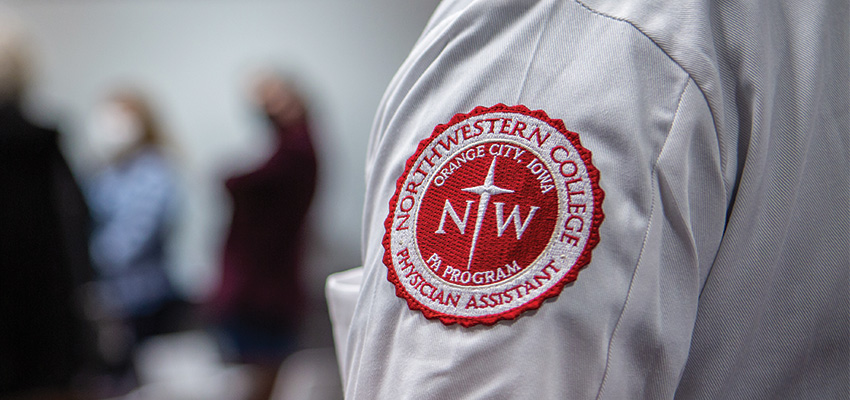We Keep Going: A Reflection from the Code Room

Some experiences stay with us long after we leave the room. The following reflection was shared by a Northwestern College PA student and offers a raw and reverent glimpse into the reality of life, loss, and duty in a clinical setting. Shared with permission, this moment reminds us of the quiet humanity behind every alarm and protocol.
Code
Manage compressions, ensure correct placement, depth, rate. Place the pads, set up a 12 lead, record meds. Identify pulses, charge the defibrillator, assess the rhythm. Breath, breath. Respond and act quickly. Work as a team. Minutes feel like seconds, and things happen faster than you’d expect. The rhythmic pumping of compressions and beeping of monitors takes up most of the air in the room. Chaos would be expected, with so many tasks simultaneously being completed, but the room is calm. In all of that, I am caught up. Each person does their job, we do it well, we know our protocols. We all seamlessly identify a need and fill it. In that moment we all have the same focus. I found myself looking at her open eyes, green and distant, quickly I redirected to focusing on my 120 beats per minute pace. Only listening for a new instruction from the doc. Compress, recoil, compress.
But what happens after this. The doctor directs “stop compressions”. I lift my hands off the chest I had spent 10 cumulative minutes compressing, I did not even know her name. I found myself thinking “wow my hands hurt” as I noticed an extra electrode was placed right in the center of her chest. Immediately I felt guilty for this. I looked toward her face and was caught up in a wave of remembering her humanness. Her husband entered the room. We
had been pushing medications, administering shocks. The doctor gave the word and all of that stopped. Wires and monitors were disconnected. The room was still quiet. Now there were only a few of us cleaning the room. It felt anticlimactic. He walked over and held her hand. He said “I hear you’re from Minnesota” and a tear fell from his eye. She lay there. We walked out of the room and went back to work. A new patient in room 5. We did not know her, nor did we know him, but we could feel the weight of her loss. The contrast of logic and focus, to the sadness witnessed just after was confusing. And yet, we keep on going.
Later, when I get in my car and turn on a song that makes me think of the life she had lived, I will cry. And cry a lot. But, here and now I will see that patient in 5. And I will give them the same attention I gave her.
Healthcare professionals carry the weight of both urgency and emotion each day. It's a reminder that, behind the precision and professionalism, there are hearts that feel deeply, even when the world outside doesn’t see it. If you feel called to serve with both skill and compassion, explore what it means to become a PA through our Physician Assistant program at Northwestern College.
